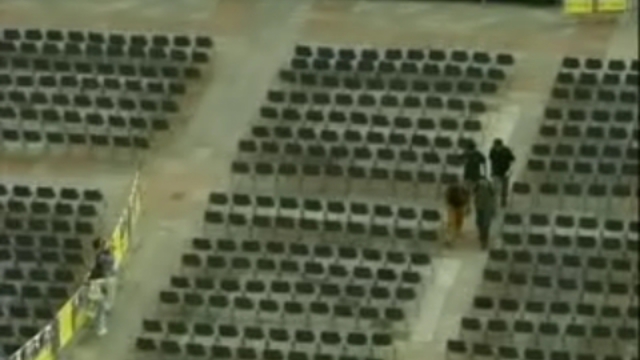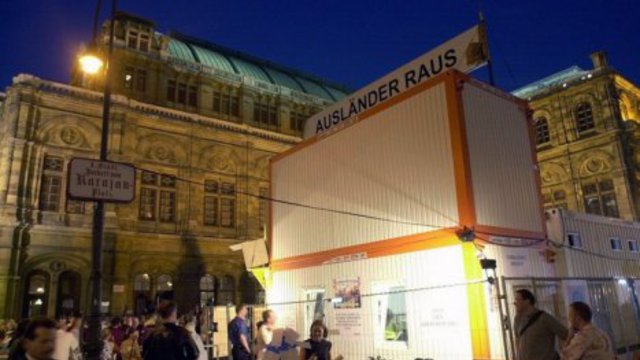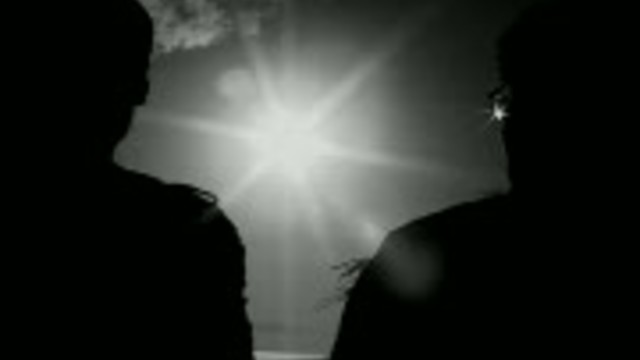Search results for 'Austria'
Dictionary of War - Novi Sad Edition
After a one year break the DICTIONARY OF WAR continues with a fifth edition on January 25th and 26th, 2008 in Novi Sad, Serbia. Again 25 new concepts on the topic of war will be presented in alphabetical order by artists, theorists, filmmakers, scientists, researchers. Loosely based on the slogan: "At least, when we create concepts, we are doing something" DICTIONARY OF WAR is a collaborative platform for creating concepts.
ReadStranded
When thinking about dead bodies on the beach, these days most people think of refugees whose boats sank during the dangerous sea crossing to the European Union. The number of refugees drowned in the Mediterranean Sea in 2015 is the highest ever, reaching 2,500. The killing of these men and women can effectively be seen as a direct – and deliberate – act of EU policy, making the border between Northern Africa and Europe the deadliest in the world.
The photographic series "Stranded" shows men lying motionless on an empty beach. But unlike refugees these men wear business suits, the standardized clothing of politicians and managers. Their bodies are partly in the water, partly on the beach; they appear to be stranded.
Truth is concrete
A 24/7 marathon camp on artistic strategies in politics and political strategies in art. 21/09 - 28/09/2012, Graz, Austria.
ReadWhat will you do with the bandwidth?
The European Cultural Backbone was founded as an initiative of 16 Trans-European Media Institutions. They baptize their baby with an extensive "We want Bandwidth" campaign, starting in a medium near you any minute. What to do with it and what to make with it?
The Need for Practice
Exhibition, Bratislava, May 23 - June 22, 2014:
We are living in a prolonged period of economic, social, political and
environmental crisis, in which the yearning for global, redeeming
visions of the future has become increasingly frustrating, if not
obsolete. However, it is not possible to live without expectations,
without being able to imagine better conditions, a more positive state
of affairs. And what if ? as many thinkers, cultural producers and
various practitioners propose ? instead of heading towards fixed images
of the future, we understand utopia, as a continuous process of becoming
in which we participate? That is, instead of viewing the future as an
end, a goal we should attain in an ever-delayed 'some day', we actualize
it in the present, perform it in the everyday?
It's the Political Economy, Stupid - The Global Financial Crisis in Art and Theory
Book presentations:
Tuesday, 5 March 2013, 7:00 p.m.
Depot, Vienna
Oliver Ressler in conversation with Luisa Ziaja (held in German)
An event in cooperation with Open Systems - Zentrum für Kunstprojekte, Vienna
Friday, 8 March 2013, 7:30 p.m.
Home Workspace, Ashkal Alwan, Beirut
Book signing at 7:30pm and presentation at 8pm by Gregory Sholette
Thursday, 25 April 2013, 6:30 p.m.
Austrian Cultural Forum, New York
Book presentation with Gregory Sholette, Oliver Ressler and guests
Take The Square
A 3-channel video installation by Oliver Ressler - 2012
The
emergence of the movements of the squares and the Occupy movement in
2011 can be seen as a reaction by people who opposed and began to fight
the massive increase in social inequality and the dismantling of
democracy in times of global financial and economic crisis. The
movements of the squares are non-hierarchical and reject representation;
direct democracy shapes their activities. The occupation of public
places serves as a catalyst to develop demonstrations, general strikes,
meetings and working groups on different focal points. Successful site
occupancies in one place often inspire occupations in other cities,
without a linear relationship.
Insular Technologies - A Civil Tactical Response to SIGNIT Communities
In the past four years we have been accustomed to receive information on the extent of global signit work that has actually been going on without the knowledge of civil populations, communications infrastructure users and developers and in many cases even governments. A very quiet debate has started around issues arising from the knowledge about the ECHELON system, which has now spread also into mainstream politics, and we should be very careful observers of this processes. One should also be aware of the fact, that possible ?sister" systems exist in the EU countries, Russia, France and China, although not much is known about them, except what can be gathered from each countries encryption regulations, which in this respect can be taken as an information on each of the countries civil rights and signit polices. We can also assume that Israel possesses strong signit mideast oriented capabilities.
ReadA context for collecting the new media
At the turning of the year 1992 I received the program and manifesto for the Next 5 Minutes Conference in Paradiso. As professional collector of documents by and about social movements for the International Institute of Social History, the list of videos to be shown caught my attention immediately. This was an excellent opportunity to realize something for which I had been trying already for some time, to make an international sample collection of products from the movement of new independent video makers.
ReadThe Brent Spar Syndrome
Shell is not going to forget lightly its misadventures with the Brent Spar. The Oil Major was taken by complete surprise when the Greenpeace campaign against sinking that former drill platform achieved its goals. What happened to Shell can in fact happen to any corporation. Loosing control of the situation as result of the activities of a pressure group has become a nightmare scenario for the modern multinational enterprise.
ReadCHANCE 2000: Vote yourself! Just do it!
Germany 1998: 2 years before the New Millenium a new form of
Political Party came into existence: CHANCE 2000 - The Party of the
Last Chance. In the midst of an election that was one of the most
important in postfascist Germany an artist jumped into the political
arena to "make politics more aesthetic and aesthetics more political".
The film- and theatremaker and talk show host Christoph Schlingensief
started the Campagne: "VOTE YOURSELF!" In Berlin he started the project
with an "Election Circus". Together with a famous circus-family from
former East Germany and with his crew of actors and his family of
handicapped performers he founded "CHANCE 2000 - Party of the Last
Chance" in a circus tent in Berlin/ Prenzlauer Berg. The message for
the Republic was: "Vote Yourself, we know how to do it!" Every citizen
was asked to become an independent candidate for the new Bundestag.
Manuals were sent out how to become a direct candidate. And many
different people realized their chance to "prove that they exist" by
bringing their name on the ballot sheet: "Chance Meier", "Chance
Mueller", "Chance Schmidt". If you managed to collect 200 signatures of
support in your political region you were part of the game and you
could vote yourself. Why not voting somebody you know by heart, you
trust and love?
Minor Media Normality in the East
1. Autogenerative Europe
In our imagination, eastern Europe was always black and white. Traveling to East Germany or Poland meant suddenly leaving colorful western Europe and entering a movie from the forties or fifties. Later we simply couldn't remember having seen any color, not the green of the trees, nor the red of the brick buildings. When we went to the movies to see a film by Wajda, Kieslowski or Tarkowsky, the filmmaker's experiments with color only reinforced our image of the east as gray. Europe clearly had an ideologically motivated neurosis when it came to the perception of color.
Slashing the Borg: Resistance is Fertile
(C) Mark Dery 1996; all rights reserved; reproduction in any medium without author's written permission forbidden.
Ban Facial Recognition Europe
Text campaign and research Ban Facial Recognition Europe, by Paolo Cirio. 2020
This petition introduces the campaign for the permanent ban of Facial Recognition used for identification and profiling in all of Europe. An initiative by the activist Paolo Cirio and thanks to the research and analysis of European Digital Rights (EDRi).
Absorption and Exposure
I am interested in a certain sense of wanting to be "in" something: to participate in it, to connect with it, to synchronize with it, to be caught up with it, rather than to visually possess it. The desire to be attuned to something that is happening, or that might happen at any moment -- not necessarily as a conscious thought, but as a vaguely felt expectation. The desire to move toward something that is (or might be) happening, in order to absorb its force, touch it, taste it, surrender to it -- rather than simply to observe it.
ReadA Brief History of the Noborder Network
It wasn't exactly the right place nor really the right time to launch a political campaign which publicly called for a series of offenses against the law, yet when the call "No one is illegal" went out exactly five years ago at documentaX, the usual reservations counted little. In the Orangerie which had been temporarily arranged as a media laboratory, at the end of the visitors' course of the well-known Kassler art exhibition, a dozen political and media activists from all Germany's bigger cities met up at the end of June 1997 in order to publish an appeal.
ReadSome points of departure
Introductory essay for the second editon of the Next 5 Minutes festival of tactical media, 1996.



